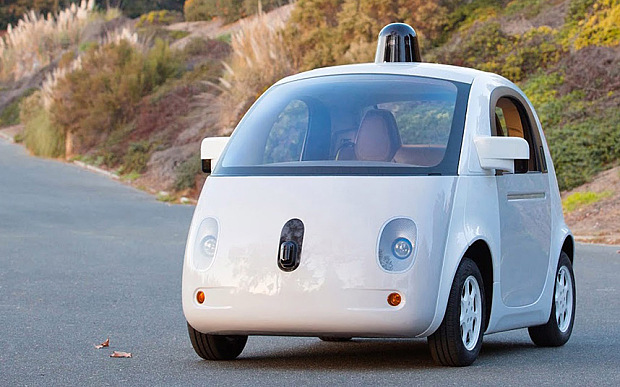
Britain’s biggest motor insurers have joined forces to respond to the rise of driverless cars, as the technology threatens to turn their industry upside down and hit profits.
Direct Line, Aviva and Admiral are among the 11 companies behind a newly-created group that plans to represent the insurance industry as the Government decides how to prepare for the onset of self-driving technology on Britain’s roads.
Driverless cars are expected to lead to a dramatic reduction in accidents, cutting insurance premiums by up to 80pc in 25 years’ time. They could also shift liability for accidents from drivers to vehicle manufacturers, meaning a complete restructuring of how the industry operates.
The Automated Driving Insurance Group, led by the trade body the Association of British Insurers, will present a united front as the Government prepares new laws for driverless vehicles.
The group, also including Axa, LV and Zurich, will examine how the industry should respond to the rise of autonomous cars, including how to insure them and contributing to government discussions on regulation. The group, which is being led by David Williams, Axa’s head of underwriting, held its first meeting in December.
Car manufacturers are gradually introducing “assisted driving” features into their vehicles that brake and park automatically, and are able to stay within their lanes independently. It is seen as a step towards fully-autonomous cars, which can drive without any human input, and could be on roads in as little as five years.
Thatcham Research, the insurance industry’s research arm, has estimated that insurance premiums could fall by 50pc by 2025 and 80pc by 2040 as safety improves dramatically. Although claims will also fall, profits are expected to be under threat as revenues shrink.
Insurers could also find themselves dealing with vehicle manufacturers, rather than drivers, as responsibility for accidents moves to those who have designed driverless car technology, forcing them to re-evaluate their business models.
The Government has pledged to amend road laws by 2018 to account for the rise of driverless cars, or cars that are semi-autonomous. This could allow for car companies to be liable for damage and injury, meaning that the companies would have to take out insurance policies.
 How Google’s cars see the road Photo: Google
How Google’s cars see the road Photo: Google
“Contrary to what some people might expect, insurers are not standing in the way of this development but actively looking to support progress and innovation,” James Dalton, director of general insurance policy at the ABI, said.
“The role of motor insurance in such a future will be very different to what it is today, but insurance will be part of the picture.”
Driverless cars were tested on British roads for the first time last year, while Google has been testing its own technology in California since 2012. The company has said it wants to see its fully-driverless cars on the road in 2020.






